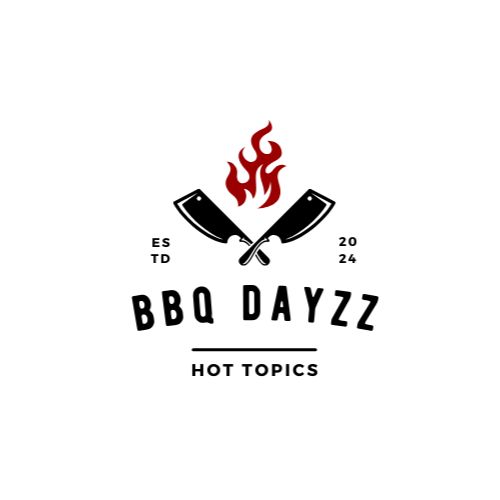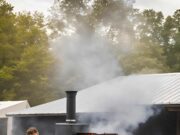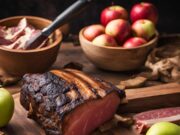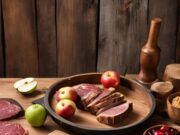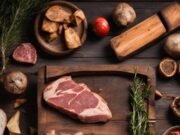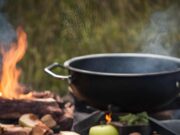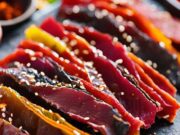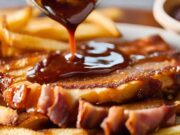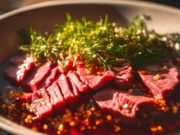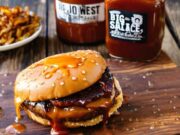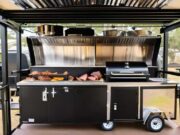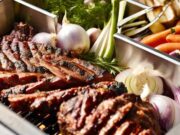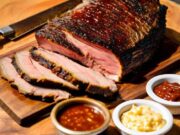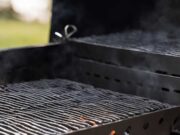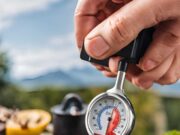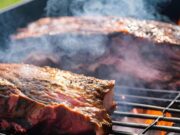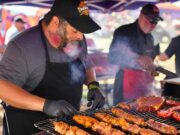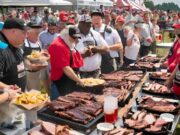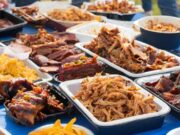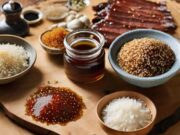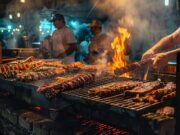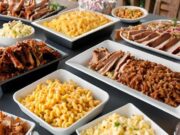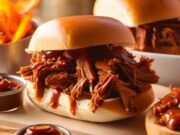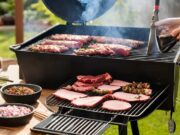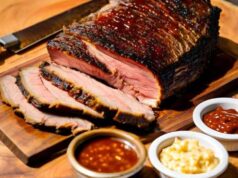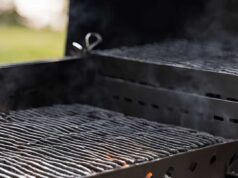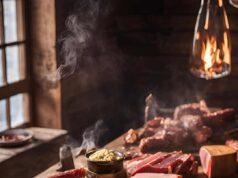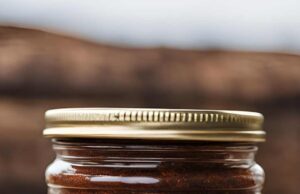Barbecues are a cherished summer tradition that brings friends and family together for enjoyable food and camaraderie.
It is essential to prioritize food safety during these gatherings to prevent foodborne illnesses and ensure that everyone has an enjoyable experience.
This guide presents crucial tips on safe food handling, appropriate cooking methods, and best practices following the cookout.
From understanding common pathogens to accommodating food sensitivities, each section offers valuable insights to help you host a safe and enjoyable barbecue.
Let’s explore the important aspects of BBQ food safety.
Key Takeaways:
- Proper food storage and marinating practices are essential for preventing foodborne illnesses at a BBQ.
- Cleanliness and avoiding cross-contamination are crucial for ensuring food safety while grilling.
- Post-cookout, leftovers should be stored safely and guests with food sensitivities should be accommodated to ensure a safe and enjoyable BBQ experience.
Understanding Foodborne Illnesses
Foodborne illnesses are often a result of harmful pathogens that can be introduced to food through improper handling, cooking, or storage practices. Understanding the risks associated with consuming contaminated food during BBQ events is therefore imperative.
Among these pathogens, E. coli is particularly noteworthy due to its prevalence and the severe health issues it can cause, such as abdominal pain, diarrhea, and, in severe cases, kidney failure. This bacterium typically enters the food chain through undercooked meats or contaminated vegetables and can thrive in unsanitary conditions. It is crucial for food handlers to prioritize hygiene, which includes frequent handwashing and ensuring that utensils are properly sanitized, to mitigate the risk of cross-contamination.
Adhering to food safety guidelines is essential not only for protecting individual health but also for safeguarding public wellbeing during communal dining occasions.
Essential BBQ Food Safety Tips
To ensure a safe and enjoyable BBQ experience, it is essential for you to follow key food safety tips that emphasize proper preparation, cooking methods, and hygiene. These practices work together to prevent foodborne illnesses and enhance your outdoor cooking experience.
1. Proper Food Storage
Proper food storage is a critical aspect of BBQ food safety, as it involves maintaining ingredients at safe temperatures to prevent the growth of harmful bacteria before grilling begins.
To achieve this, it is essential to utilize coolers for transporting and storing perishable items such as meats, dairy, and certain vegetables. Ensure that you pre-chill your cooler and fill it with plenty of ice packs or ice to maintain a temperature below 40°F. Regularly monitor the temperature with a food thermometer to confirm that your ingredients remain within the safe zone, thereby preserving their quality and preventing spoilage.
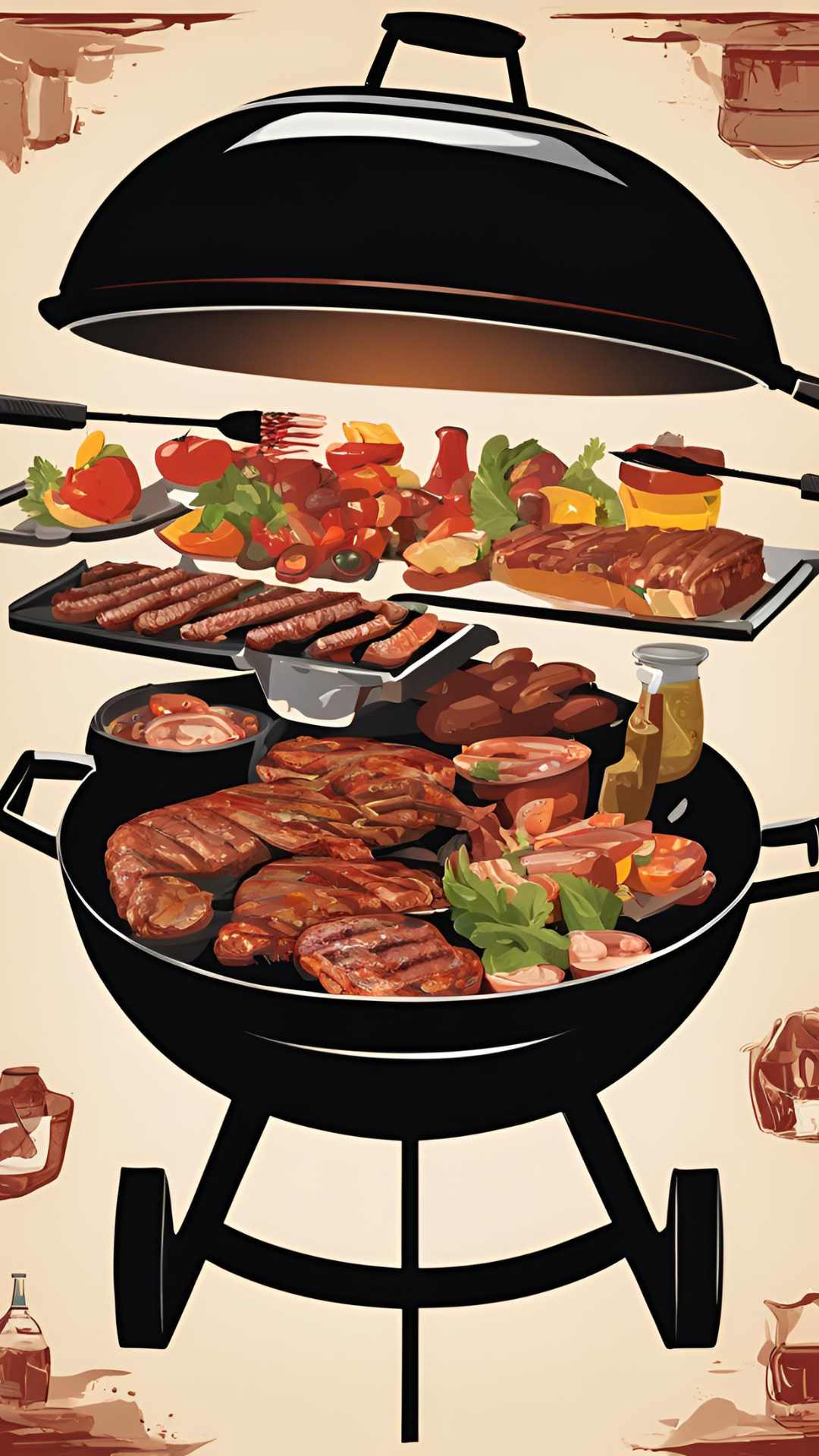
Additionally, it is advisable to keep raw meats separate from ready-to-eat items to avoid cross-contamination, further enhancing safe practices in food preparation and hygiene.
2. Safe Marinating Practices
Safe marinating practices are essential for preventing cross-contamination and ensuring that flavors are effectively infused into meats and poultry without compromising food safety.
To achieve this, it is crucial to use separate containers for raw meats and marinades, minimizing the risk of bacteria transferring to other foods. Utilizing glass or food-grade plastics is advisable, as these materials do not react with acidic marinades. When preparing for a BBQ, remember to refrigerate the marinating meat to inhibit harmful bacterial growth, especially during extended marinating periods.
It is important to never reuse marinades that have been in contact with raw meat unless they have been boiled first to eliminate any pathogens. By adhering to these safe marinating techniques, you can enjoy deliciously seasoned dishes while prioritizing health and food safety.
3. Cleaning Your Grill and Utensils
Cleaning your grill and utensils thoroughly is essential for preventing cross-contamination, which can lead to foodborne illnesses during your BBQ gatherings.
Ensuring a clean cooking environment not only protects the health of everyone enjoying the meal but also enhances the overall flavor of the food. It is crucial to establish a routine for washing all cooking tools before and after use, utilizing hot soapy water and food-safe disinfectants whenever possible.
Cleaning the grill grates after they cool down helps eliminate residue that could harbor harmful bacteria. Using separate utensils for raw and cooked foods further minimizes the risk of transferring pathogens, thereby guaranteeing a safer and more enjoyable BBQ for all.
Cooking Safely on the Grill
Cooking safely on the grill is essential for ensuring that the meats and poultry served at your BBQ are safe for consumption. This involves adhering to recommended cooking temperatures and closely monitoring the grilling process throughout.
1. Recommended Cooking Temperatures
Understanding the recommended cooking temperatures for various types of meat and poultry is essential for ensuring that harmful bacteria are eliminated, making your BBQ safe for consumption.
A reliable food thermometer is an invaluable tool in this process, allowing you to accurately measure the internal temperature of your dishes. For example, ground meats should be cooked to a minimum internal temperature of 160°F (71°C), while whole cuts of beef, pork, lamb, and veal should reach at least 145°F (63°C), followed by a three-minute rest period. Poultry, including chicken and turkey, must be cooked to a safe temperature of 165°F (74°C) to effectively eliminate pathogens.
By understanding these critical temperatures and utilizing a thermometer, you can significantly reduce the risk of foodborne illnesses, ensuring that your outdoor cooking is both enjoyable and safe.
2. Avoiding Cross-Contamination
Avoiding cross-contamination between raw and cooked foods is essential for maintaining food safety standards during your BBQ, as it significantly reduces the risk of foodborne illnesses. This practice is particularly crucial when grilling; while the heat from the barbecue kills most bacteria, it cannot eliminate the danger if raw ingredients come into contact with cooked ones.
To uphold safety, it is advisable to designate separate utensils and cutting boards for handling raw meat, preventing juices from contaminating ready-to-eat items. Ensuring that grilled chicken or burgers do not share the same plate with uncooked steaks can greatly lower the risk of contamination.
Additionally, frequently washing hands and surfaces, along with using color-coded utensils, can further enhance food handling practices. This allows you to enjoy your outdoor gatherings with peace of mind.
3. Keeping an Eye on the Grill
Maintaining a vigilant watch over the grill is essential for preventing accidents and ensuring that your food is cooked safely and thoroughly during a BBQ.
Being attentive enables you to identify potential hazards, such as flare-ups, which can not only char your food but also present a fire risk. It is crucial to have a fire extinguisher readily available and to keep flammable materials at a safe distance from the grilling area.
Conducting regular checks on the propane tank and grill connections can further enhance safety, helping to prevent gas leaks. By implementing these safe cooking practices, you can enjoy delicious meals while minimizing risks, creating an enjoyable barbecue experience for everyone involved.
Post-Cookout Food Safety
Post-cookout food safety is essential for ensuring that any leftovers from your BBQ are stored properly, minimizing the risk of contamination and foodborne illnesses.
To achieve this, it is crucial that food items are allowed to cool sufficiently before being placed in the refrigerator, ideally within two hours after cooking. This rapid cooling helps inhibit the growth of harmful bacteria, making the dining experience safer overall.
When storing food, utilize airtight containers to create a barrier against potential contaminants, and label each container with the date to help track freshness.
Maintaining your refrigerator temperature at 40°F (4°C) or lower is vital in controlling bacteria growth. By adhering to these best practices, you can ensure that your delicious BBQ leftovers remain safe and enjoyable for days to come.
Dealing with Food Sensitivities
Dealing with food sensitivities during your BBQ requires a high level of awareness and thoughtful accommodation to ensure that all guests can enjoy the meal without risking their health.
This involves understanding the specific needs of individuals with allergies or intolerances and implementing strategies to minimize the risks associated with cross-contamination. One effective approach is to clearly label all dishes, particularly those that might contain common allergens such as nuts, dairy, or gluten. It is essential for guests to feel comfortable navigating the spread, so providing ingredient lists can be incredibly helpful.
Additionally, consider using separate utensils and cookware for different food items to maintain safe food preparation practices. Establishing a dedicated grill section for allergen-free items ensures that those with food sensitivities can enjoy BBQ delights with peace of mind.
Frequently Asked Questions
What are some important tips for ensuring a safe and enjoyable BBQ cookout?
1) Always wash your hands before and after handling raw meat or other ingredients. This helps prevent the spread of bacteria.
2) Use separate cutting boards, utensils, and plates for raw and cooked meat to avoid cross-contamination.
3) Make sure to cook meat to the appropriate internal temperature to kill any harmful bacteria. Use a meat thermometer to accurately check for doneness.
4) Marinate meat in the refrigerator, not on the counter, to prevent bacterial growth.
5) Keep cold food cold and hot food hot. Perishable items should not be left out in the sun for more than 2 hours.
6) When in doubt, throw it out. If you are unsure about the safety of a certain food item, it is always better to err on the side of caution and discard it.
How can I ensure that my BBQ food is safe to eat?
1) Make sure to purchase meat from a reputable source and check for any expiration dates.
2) Thoroughly clean and disinfect your grill before and after use to prevent any foodborne illnesses.
3) Keep raw and cooked meat separate and do not use the same utensils or plates for both.
4) Monitor your grill temperature to ensure that the meat is cooked evenly and to the appropriate temperature.
5) Use a clean platter to transfer cooked meat to avoid any cross-contamination with raw juices.
6) Educate yourself and your guests on safe food handling practices to prevent any potential foodborne illnesses.
What are some common mistakes to avoid when it comes to BBQ food safety?
1) Thawing meat at room temperature. Instead, thaw meat in the refrigerator or in a cold water bath.
2) Not properly storing leftovers. Cooked meat should be refrigerated within 2 hours, and any leftovers should be eaten within 3-4 days.
3) Undercooking or overcooking meat. This can lead to foodborne illnesses or dry, tough meat.
4) Not using a meat thermometer to check for doneness. Relying on visual cues can be unreliable.
5) Not washing fruits and vegetables before grilling them. This can introduce bacteria to your food.
6) Not properly cleaning and disinfecting grill utensils and surfaces after use.
What are some food safety tips for outdoor BBQs?
1) Make sure to have access to clean water for handwashing and cleaning utensils.
2) Use disposable plates and utensils to avoid the risk of cross-contamination.
3) Keep cold food in a cooler with ice or frozen gel packs, and do not leave it out in the sun for too long.
4) Keep hot food covered and at the appropriate temperature (above 140°F) to prevent bacterial growth.
5) Provide a separate area for guests to dispose of used plates and utensils to avoid contamination.
6) Offer a variety of food options for guests with dietary restrictions or allergies.
What should I do if I or my guests experience symptoms of food poisoning after a BBQ?
If you or your guests experience symptoms such as nausea, vomiting, diarrhea, or fever within a few hours or days after the BBQ, seek medical attention immediately. It is important to report any suspected food poisoning to your local health department so they can investigate and prevent any further cases.
If possible, save a sample of the food in question for testing. Drink plenty of fluids to prevent dehydration, and avoid consuming any more food from the BBQ until the source of the illness is determined.
Are there any specific food safety tips for grilling seafood?
1) Make sure to purchase seafood from a reputable source and check for any expiration dates.
2) Keep seafood refrigerated until ready to grill.
3) Marinate seafood in the refrigerator and discard any remaining marinade that has come into contact with raw seafood.
4) Cook seafood to the appropriate temperature, depending on the type (e.g. shrimp should be cooked to an internal temperature of 120°F, while fish should be cooked to 145°F).
5) Use a clean platter to transfer cooked seafood and avoid any cross-contamination with raw juices.
6) Avoid consuming raw seafood or undercooked seafood, especially for pregnant women, young children, and those with weakened immune systems.
